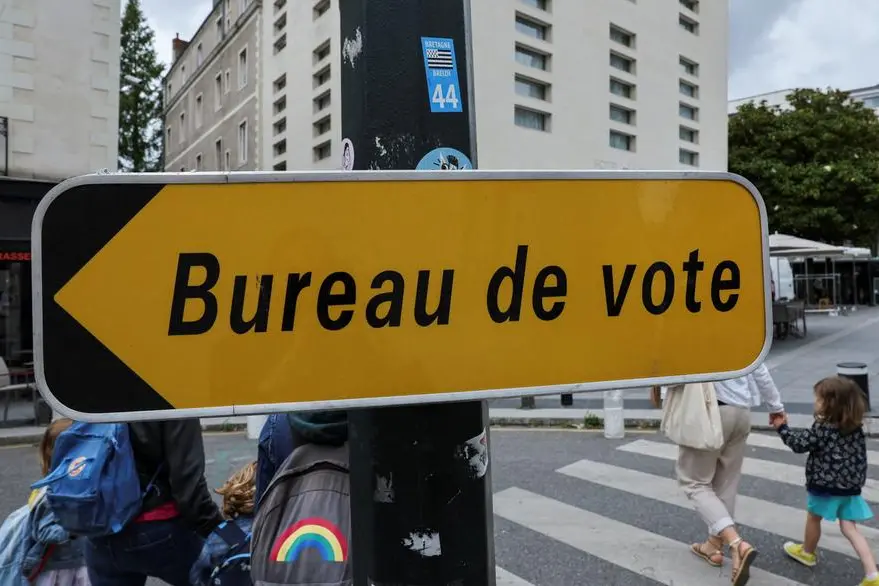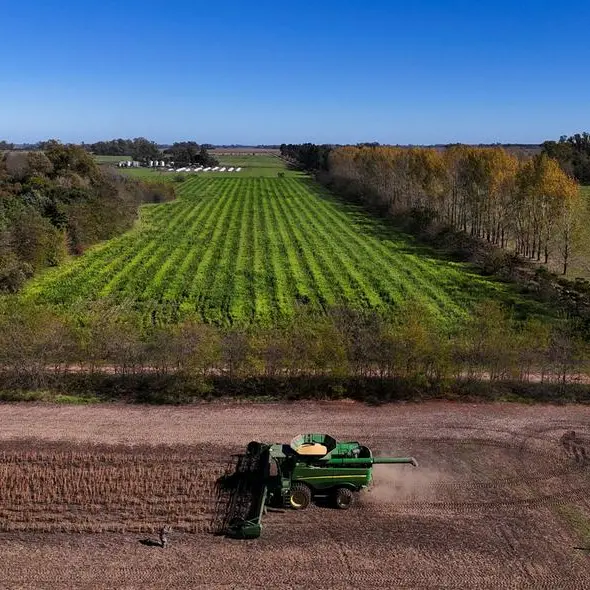PHOTO
PARIS - Parties across the political spectrum urged French voters to vote massively on Sunday to tilt the outcome either way as opinion polls forecast the far-right would be the largest party but fall short of an absolute majority.
Marine Le Pen's eurosceptic, anti-immigration National Rally (RN) topped the parliamentary election's first round with a third of the vote, opening the prospect of the far right leading a French government for the first time since World War Two.
But after a subsequent series of tactical withdrawals of candidacies from mainstream parties aimed at boosting whoever is best placed to beat the far right, several surveys have projected a drop in the number of seats the RN could win, making an absolute majority even harder to reach.
Le Pen, who has said the "republican front" of mainstream parties shows disdain for her voters, urged them to prove pollsters wrong in the decisive run-off election on Sunday.
"I get the impression that all this is designed to demotivate our voters. Fortunately, I know them and I know they're highly motivated, so I tell them, really do go and vote," Le Pen told Europe 1 radio and CNews TV.
"We need everybody," she said on the last official day of campaigning ahead of Sunday's vote.
An OpinionWay poll for French business daily Les Echos projected the RN winning 205-230 seats, ahead of the leftwing New Popular Front (NFP) with 145-175 seats, and President Emmanuel Macron's centrist bloc with 130-162 seats.
The findings were in line with other surveys released over the past few days.
For a ruling majority, 289 seats are needed in the National Assembly.
But European Parliament lawmaker Raphael Glucksmann, one of the political leaders of the NFP, warned no one should take those polls for granted.
"Commentators and politicians already speak as if the RN had no absolute majority and congratulate themselves on their efforts to block it ... I think that could demobilise voters, and I am worried. There is a tidal wave in favour of the National Rally," he told RTL radio.
'THE BIG UNKNOWN'
Much uncertainty remains, including whether voters will go along with these efforts to block the RN, pollsters say.
"The big unknown is the size of the republican front ... will a leftwing voter cast a ballot for a right-wing candidate or a Macron camp candidate?" IFOP pollster Jerome Fourquet said on RMC radio. So much was up in the air that a leftwing alliance outpacing the RN could not be entirely ruled out in the end, he said.
If the vote is in line with the latest surveys, the election will deliver a hung parliament. Options would include attempting to pull together a coalition; a party running a minority government; and naming a caretaker government that would aim to strike deals on each legislative proposal.
Any of those scenarios would likely spell political uncertainty and obstruct policy-making, stunting economic reform efforts.
As the tense campaign was wrapping up, Interior Minister Gerald Darmanin said that at least 51 candidates and their supporters had been physically harmed, quite a few of them while putting up campaign posters.
"Outbreaks of violence are to be feared on Sunday," he told BFM TV, after he decided to step up the police presence and ban a planned far-left demonstration at the National Assembly on voting day.
Some voters in France looked with envy at the decisiveness of Thursday's election in Britain in which the Labour Party surged to a landslide victory, ending 14 years of often tumultuous Conservative government.
"The British should count themselves lucky," lawyer Natacha Lesellier said in Paris.
(Additional reporting by Yiming Woo; writing by Ingrid Melander; editing by Tassilo Hummel, Sonali Paul and Mark Heinrich)




















